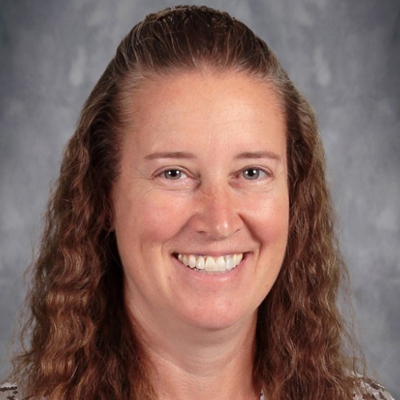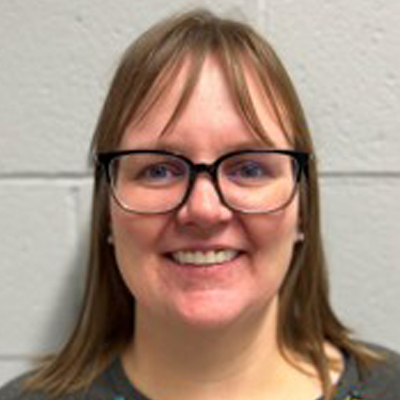teacher center
2023 National Excellence in Teaching about Agriculture Award
SEVEN TEACHERS, TEAM OF TEACHERS SELECTED FOR THE 2023 NATIONAL EXCELLENCE IN TEACHING ABOUT AGRICULTURE AWARD
A Maine teacher of fifth and sixth grade students who also sponsors a school garden club, a Utah fourth grade teacher who teaches students to solve agriculture challenges and six other teachers from around the country have been selected as the 2023 National Excellence in Teaching about Agriculture Award winners.
The National Agriculture in the Classroom Organization (NAITCO), U.S. Department of Agriculture's National Institute of Food and Agriculture (USDA-NIFA) and Farm Credit partner each year to honor teachers in pre-kindergarten through 12th grade (Pre-K-12) from around the country for the innovative ways they use agricultural concepts to teach reading, writing, math, science, social studies, STEM, STEAM and more.
"These outstanding teachers recognize that agriculture also is fertile ground for teaching botany, biology, chemistry, finance, climatology, and arts, in ways that any age or level of students can understand, appreciate and apply to their daily life," said Dr. Carrie Castille, director of USDA-NIFA, which provides federal leadership and annual funding for NAITC. "When a student makes that real-life connection to the lessons their teachers share, students continue to learn and absorb the true meaning of those lessons when they leave the classroom. Innovative teachers like these are often responsible for awakening a student's love of learning, nature and science."
"National Agriculture in the Classroom and its state and territory program leaders are honored to recognize and celebrate these talented teachers for the innovative ways in which they use agricultural themes to teach core curriculum concepts in science, social studies, language arts, and nutrition," said Denise Stewardson, president of NAITCO and director of Utah Agriculture in the Classroom. "Their efforts are critical in cultivating an understanding of and appreciation for agriculture in this generation of students."
"Teachers are key partners in agricultural literacy education, helping to shape the next generation of agriculture advocates through intentional and engaging activities," said president and CEO of the Farm Credit Council Todd Van Hoose. "Farm Credit is proud to honor these innovative educators and support their ongoing commitment to growing future leaders."
2023 National Excellence in Teaching about Agriculture Award Recipients:
Primary
Monica Massei, Georgia

Monica has worked with various organizations to ensure that she has the volunteers and resources to teach her students. Monica has a close relationship with her local Farm Bureau and that has allowed her to network, receive financial support and have local experts help her with projects. Monica is constantly seeking to learn more about agriculture so she can share her new knowledge with her students and fellow teachers. She has attended Georgia Farm Bureau Ag Educator Workshops and Tours, and attended Georgia Farm Bureau's Educational Leadership Conference. Monica is always looking looking for ways to connect to other ag groups so her students can understand the importance of agriculture and how it relates to their life. The hands on opportunities that Monica provides to her students is something that they will never forget. She is creating the future cheerleaders of Georgia agriculture!
Haley Broussard, Louisiana

I have a passion for providing my students with unique real world learning experiences that enable student learning outside of the four walls of my classroom. I use our “Cycles in Nature'' reading unit to help me connect real world learning within all subjects throughout the entire year. During the unit, students learned about plant and animal life cycles, as well as Earth’s relationship to Nature. After teaching this unit, I use it as a focal point in other cross curricular lessons beyond just reading and math. I’m able to teach topics such as economics, food, health, lifestyle, technology, engineering, culture and society through the school garden and other teaching tools I added to our campus with the help of Farm Bureau and community support.
Our school garden was an important tool I used to help me teach core concepts through experiential learning. Overseeing the garden has by far become one of my greatest teaching tools. I am able to incorporate the garden into all subject areas to provide my students with unique learning approaches. For example, students made homemade soap using fresh garden herbs while learning about different states of matter, as well as chemical and physical changes.
Stacey Sanborn, Maine

Service learning and helping others in the community resonates in my classroom. Everyone should have access to fresh fruits and vegetables. That is why students in my class learn through “Manchester Gardens for Learning”. As co-coordinator of the gardens, we are growing all year and providing produce to the cafeteria and local food pantry. Students are actively involved in all aspects of the garden, even during the winter months, which can be a challenge in Maine, using our hoop house. Sampling foods, cooking, and learning about soil, pollination, and composting, are all year-round activities integrated into the curricula. The class also participates in the “Adopt a Calf” program and attends Ag Education Day at the local fair.
Additionally, I coordinate school wide garden and orchard activities for all classes and provide agricultural professional development program for colleagues. I helped to write grant applications to seek local financial support to expand outdoor Ag classroom options. We have hosted state-wide garden trainings for other educators. Other agricultural activities include teaching a Hunger Unit related to agriculture, creating the first ever Manchester Agricultural Literacy Night, hosting the MAITC Book Barn, and creating a database of agricultural resources for all teachers at the school.
Clayton and Megan Kappauf, New York

My wife and I grew up on farms in Upstate New York. We enjoy gardening and processing much of our own food. We have found ways to bring the values we hold dear into our classrooms. We use aeroponic growing systems to bring the garden indoors so that we can use it to teach our students all year long. Traditional gardens are harvested when our students are on summer vacation. Through the use of the tower gardens we have grown and eaten a variety of vegetables and herbs during the course of the school year. Basil grown in our tower gardens is used as a springboard into other lessons. We make caprese sandwiches with the basil which leads us to making our own mozzarella cheese. We preserve herbs by dehydrating them. Our dehydrator is also used to dry apple rings, and make fruit leather from our pear tree. In early spring we begin to focus outdoors, tapping trees to make maple syrup, and starting plants in our greenhouse built by our students. Teaching through the lens of agriculture allows us to cover our mandated curriculum in a manner that is fun and interesting for both our students and ourselves.
Melody Thieme, Utah

Crimson View is one of a handful of elementary schools in Utah to have an onsite greenhouse. Since 2015, I have served as one of the chairs of the Greenhouse Committee. One of my responsibilities is greenhouse maintenance. Every Friday, my students who are assigned a job, complete any maintenance and upkeep that is needed. This includes watering the plants and trees, feeding the aquaponics fish, and cutting, planting, or cleaning to sustain the greenhouse environment.
Each year I take all 4th grade students at different times to plant seeds or starter plants including vegetables used to dye fabrics like the pioneers and indigenous people did long ago. Students also grow Utah native wildflower plants and preserve them by pressing them into laminated bookmarks. In math lessons, students create data charts using measurements (metric and US customary) as the plants grow each week. They also conduct comparative studies by growing the same plants in our aquaponics side of our greenhouse to the soil side bins to examine the differences and similarities between using different methods of growing individual plants. These experiences give students hands-on learning opportunities while taking ownership in helping with the greenhouse.
Jessica Rettler, Wisconsin

As a classroom teacher, I have been able to share the multifaceted world of agriculture with students, their families, and peers. We discuss current agriculture related topics, experience agriculture through making ice-cream and fruit smoothies, sampling real maple syrup, and taking field trips to area farms. We invite local farmers, producers, and Farm Bureau members as honored guest speakers. Additionally, each year we participate in the discussion and learning that is centered around WFBF’s Book of the Year and AITC Essay Contest.
In addition to AITC, WPVGAA, related novels, and my own lessons and activities, I have been an integral part of the Farming For The Future Foundation. As the elementary school representative on the committee, I have helped design activities for the new discovery center. I have edited many lessons, and participated in two semesters of piloting these lessons. My intergenerational family farm is one of the family farms being featured in the state-of-the-art “Food + Farm Exploration Center” in central Wisconsin. I actively live, promote, and share the above opportunities, to better myself and others. My passion lies in agriculture, and I work to find unique and purposeful ways to tie in agriculture into the everyday school curriculum.
Secondary
Kendel Hayden, Kentucky

I teach Ancient World History to 6th graders at Owensboro iMiddle. Our school is a project-based school that serves city residents. Most of the students attending our school have never set foot on a farm and have never seen a farm other than the crops they pass on the highway. Few have worked in a garden.
As a project-based school, all learning is wrapped in real-life applications. Because of this approach students are able to grow a garden and draw correlations between it and early farming, share the harvest with the cafeteria and a local shelter, visit the local landfill and learn about their composting program, complete a school garbage audit to and start a composting program, and build a hydroponic growing system, once again sharing the harvest.
Jennifer Hatch, Virginia

I am a veteran teacher of 25 years, almost all of which have been spent as a middle school mathematics teacher. In my current role as Math 7 teacher at Benjamin Franklin Middle School in Franklin County, Virginia, I teach an inclusive class with a wide spectrum of learning needs. As with many middle school students, math class was not a favorite destination! However, this changed with the implementation of a hydroponics unit in my class. While agriculture has long played an important role in my county’s history, its footprint is being rapidly replaced, leaving many of my students without an idea as to its importance in their lives. The hydroponics project allowed me to present my students with a hands-on way to apply required math concepts while also integrating lessons about agriculture. I partnered with local farmers in my area to share their expertise and guidance and have watched this project take off and succeed beyond my expectations. Students are now excited to come to class and their grades and attitudes reflect this. It is gratifying to see the pride in their eyes when they harvest their plants and then excitedly beginning planning for our next set.
FOR MORE INFORMATION, CONTACT ANDY GUFFEY at 501-339-6140 or director@naitco.org
- Learn more about the Excellence in Teaching Award
- 2023 Teacher Award Press Release coming soon


